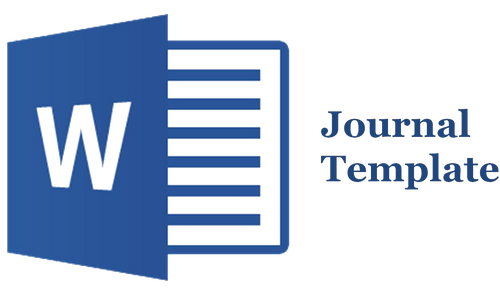IMPLEMENTASI KURIKULUM MERDEKA BELAJAR DALAM PEMBELAJARAN IPAS DI SEKOLAH DASAR
DOI:
https://doi.org/10.69875/djosse.v1i1.103Keywords:
kurikulum, merdeka belajar, pembelajaran IPASAbstract
The curriculum plays a major role in the implementation of education at all levels of learning. This research aims to explain and understand the implementation of the independent curriculum in natural and social sciences (IPAS) education in an elementary school. The approach used in this study is descriptive qualitative, with research subjects involving school principals and fourth grade teachers. Data collection methods involve interviews, observation, and documentation. Data analysis involves data reduction, data presentation and drawing conclusions. The research results show that elementary schools have succeeded in implementing the independent curriculum and have been recognized as driving schools. The renewal in the independent curriculum involved science and social studies education which was combined into IPAS. Every semester, science learning is carried out using the method of 2 science chapters and 2 social studies chapters, different from the previous year which divided the semester between science and social studies. This approach is taken to prevent monotonous learning for students. The independent curriculum gives teachers and students freedom in learning, while the science and social studies assessments are combined into IPAS, including in report card assessments
References
Hana, A. F., Wulandari, S. H., Hasan, B. M., & Fantini, E. (2023). PENGARUH MEDIA SOSIAL INSTAGRAM TERHADAP PERUBAHAN PERILAKU KOMUNIKASI SECARA LANGSUNG PADA GENERASI Z DI JAKARTA SELATAN. DISCOURSE: Indonesian Journal of Social Studies and Education, 1(1), 8-16.
Kemenkibud. RI. 2022. Buku Saku Tanya Jawab Kurikulum Merdeka. Saluran informasi dan Pengaduan Seputar Pendidikan dan Kebudayaan: (ult.kemenkibud.go.id)
Khoirurrijal, Fadriati, Sofia, Makrufi, A. D., Gandi, S., Muin, A., Tajeri, Fakhrudin, A., Hamdani, & Suprapno. (2022). Pengembangan Kurikulum Merdeka. In Cv. Literasi Nusantara Abadi, Cv. Literasi Nusantara Abadi.
Musham, J., Hasyida, S., & Aiman, U. (2021). Implementation of Contectual Teaching and Learning and Authentic Assesments to the Science (IPA) Learning Outcomes of 4th Grade Students of Primary Schools (SD) in Kota Kupang. 5(3), 11.
Rahayu, R., Rosita, R., Rahayuningsih, Y, S., Hernawan, A. H., dan Prihanitin, P. 2022. Implementasi Kurikulum Merdeka di Sekolah Penggerak. Jurnal Basicedu, 6(4), 6313-6319)
Rahmadayanti, D., dan Hartoy, A. 2022. Potret Kurikulum Merdeka, Wujud Merdeka Belajar di Sekolah Dasar. Jurnal Basicedu, 6(4), 7174-7187
Santoso, G. Damayanti, A., Murod, M., Suslihati, Imawati, S., & Asabri, M. (2023). Implementasi Kurikulum Merdeka Melalui Literasi Proyek Penguatan Profil Pelajar Pnmcasila Jurnal Pendidikan Transformatif (Jupetra). Jurnal Pendidikan Transformatif (Jupetra),02(01), 84-90
Siahaan, F. E., Siahaan, S., Siahaan, B. L., & Situmeang, S. A. (n.d). 2023. Implementasi Kurikulum Merdeka Bagi Guru IPA di Kelas Rendah. Jurnal Penelitian Dan Pengabdian Masyarakat Nommensen Siantar 3,(1), 13-19
Sudibya, I. G. N., Arshiniwati, N.M., & Sustiwati, N.L. (2022). Projek Penguatan Profil Pelajar Pancasila (P5) Melalui Penciptaan Karya Seni Tari Gulma Pneida Pada Kurikulum Merdeka. Jurnal Seni Drama Tari Dan Musik, 5(2), 25-38
Warsidah, dkk. (2022). Implementasi Pembelajaran Berbasis Kurikulum Merdeka pada Peserta Didik Kelas 4 Sekolah Dasar Negeri No. 16 Pontianak Utara. Jurnal Pendidikan Dasar, 6(2), 233-246
Wijayanti R. Yusron M.P dkk, 2022. Pengenalan Kurikulum Merdeka Belajar Pada Siswa Pondok Pesantren Menggunakan Modul Ajar. Jurnal Pengabdian Kepada Masyarakat Nusantara. 3(2), 783-788
Downloads
Published
How to Cite
Issue
Section
License
Copyright (c) 2023 Rahmania Rahman, Muhammad Fuad

This work is licensed under a Creative Commons Attribution-NonCommercial-ShareAlike 4.0 International License.





